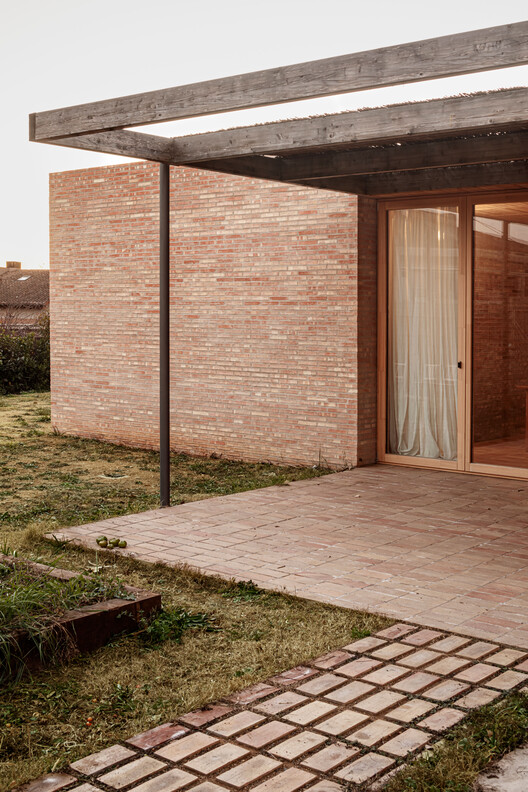
-
Architects: Alventosa Morell Arquitectes
- Area: 180 m²
- Year: 2022
-
Photographs:Adrià Goula
-
Lead Architects: Josep Ma. Alventosa, Marc Alventosa, Xavier Morell

Text description provided by the architects. This project in Llinars del Vallès involved designing and constructing a single-family house on a well-oriented plot but with compromised privacy. Through a simple design strategy and a bioclimatic approach, Casa LA offers a sheltered atmosphere for daily life, increasing the comfort of its inhabitants and reducing energy consumption. The house's layout is organized around a central fireplace and four brick volumes. These compact ceramic boxes are strategically located at the ends of the house to accommodate the bedrooms and bathrooms.































